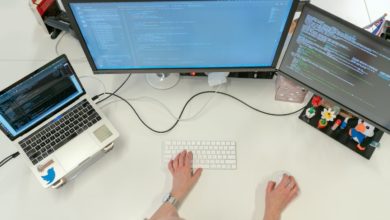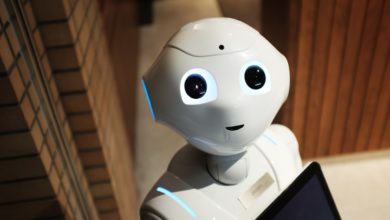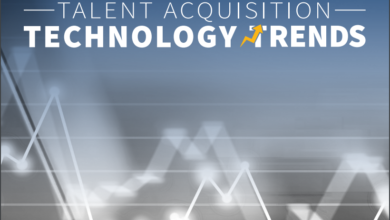
Navigating the AI Revolution in Talent Acquisition
Have you heard this before – AI is the big thing, the game-changer in the world of Talent Acquisition? But hold on, folks. Let’s not get ahead of ourselves. These AI implementations we’re seeing right now are just scratching the surface. They’re like those “proof of concept” models that are light-years away from being the real deal.
Now, I have to admit, it seems a bit counterintuitive to bring AI into the field of human resources. I mean, HR is all about the human touch, the emotions, the relationships, the subjective decision-making. But here’s the twist: AI can actually make HR better. Yeah, you heard that right. It can automate the boring, repetitive tasks, give us data-driven insights, and let HR professionals focus on what really matters – the human stuff. It’s like a strange marriage between technology and humanity that creates an HR ecosystem that’s efficient, fair, and empathetic.
AI may mimic our thoughts, replicate our actions, and echo our words, but it will never possess our capacity to dream, feel, love, and hope — the essence of human uniqueness.
Anonymous
But here’s the catch: AI is no magic solution. It’s a tool, plain and simple. It’s not some genius AI taking over the world and solving all our problems. No, no, no. We need humans in the mix, using their expertise and judgment alongside AI. We’ve got to remember that AI is there to help us, not replace us. It’s like having a trusty sidekick by your side, amplifying your skills and making you even better at what you do.
Now, let’s talk about the good stuff AI brings to the table:
- With AI-based tools, you can find the crème de la crème of talent faster than ever before. These tools can dig through mountains of data, from resumes to social media profiles, and pinpoint the absolute best candidates for your open positions. Say goodbye to wasting time and energy sifting through mediocre applicants. AI’s got your back, finding those shining stars in no time.
- AI can help you make smarter hiring decisions. It analyzes data like nobody’s business, assessing a candidate’s skills, experience, and fit for your company culture. No more relying on gut feelings alone. AI gives you the insights you need to make informed choices and avoid those costly hiring blunders. It’s like having a personal HR guru right at your fingertips.
- And let’s not forget about the candidate experience. AI can automate all those tedious tasks in the hiring process, like scheduling interviews and sending out rejection letters. That means you’ve got more time to focus on the important things – the meaningful interactions, the human connections. Candidates will appreciate the smooth, efficient process that AI brings to the table.
- AI can help you build a more diverse and inclusive workforce. It can assist in identifying and reaching out to candidates from underrepresented groups. We all know the value of diversity, right? It brings fresh perspectives, sparks innovation, and boosts productivity. With AI in your corner, you can create a workforce that truly represents the world we live in.
Now, let’s talk about the potential downsides of AI-based tools. They can be biased, my friends. Yep, you heard that right. If the data they’re trained on is biased, guess what? The AI tool becomes biased too. That can lead to discrimination against certain groups, like women, minorities, or people with disabilities. And don’t even get me started on who’s programming these AI tools. They’re engineers, not industry professionals who truly understand the nuances of the field. I mean, remember that soap dispenser fiasco? Yeah, that’s what happens when you don’t have diverse engineers on the team. Soap only for certain skin colors? That’s just plain wrong.
- Let’s not forget about the costs. AI tools can be expensive to purchase and maintain, which puts them out of reach for small businesses and organizations with limited budgets. How are they supposed to afford those sky-high rates for AI engineers? It’s like trying to buy a luxury car on a shoestring budget. It just doesn’t add up.
- And here’s another thing. AI tools can be complex beasts to set up and use. They require ongoing training and maintenance, which takes away precious time that recruiters could be spending on more important tasks like sourcing candidates and conducting interviews. I mean, do we really want our HR professionals drowning in a sea of AI algorithms, losing touch with the human side of things? I don’t think so.
- But let’s face it, folks. AI tools, as promising as they are, can never replace good old human judgment. We’re still in the early stages of AI development, and these machines just don’t have the same instincts and intuition as a seasoned HR pro. Sure, they can help with the initial screening, sorting through the pile of resumes, but when it comes to the final decision, we need that human touch. Let’s not forget that AI’s all about keywords and buzzwords. Who’s to say that the perfect candidate with all the right skills has a resume tailored for AI’s liking? It’s not that simple, my friends.
Now, let’s talk about the big picture. AI-based tools do have the potential to be a valuable asset for talent acquisition teams. I’ll give them that. But we need to tread carefully, keeping in mind the potential drawbacks and ensuring fair, ethical, and effective usage. Take Amazon, for example. In 2018, they had to scrap an AI tool they used for assessing job candidates because it was biased against women. Yeah, you heard that right. The tool was trained on a dataset that favored men, leading to gender discrimination. Amazon had to do some serious damage control and promise to fix those biases. We can’t afford to let AI run wild without proper oversight and accountability.
So, here’s the deal. We’re just scratching the surface of AI’s potential in talent acquisition. It can definitely enhance our sourcing capabilities, but it’s not the be-all and end-all solution. We still need human judgment and expertise to navigate this complex field. And you know what? In the next 3 to 5 years, we’ll see more affordable AI solutions hitting the market. That means even small businesses will have a chance to dip their toes into the AI pool. But let’s not forget that the heart and soul of talent acquisition will always rely on human judgment. AI can be a helpful sidekick, but it’ll never be the superhero.
So, let’s proceed with caution. Let’s embrace AI as a tool, a partner in our talent acquisition journey. But let’s never lose sight of our humanity and the irreplaceable value of human judgment. Together, we can leverage the best of both worlds and create a talent acquisition ecosystem that’s efficient, fair, and truly impactful.




